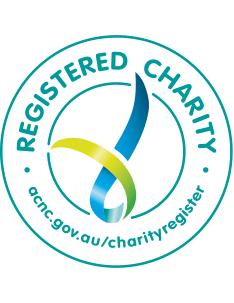March 27, 2020
Speaking to children about COVID-19
As conversations around Coronavirus (COVID-19) continue, children may worry about themselves, their family, and friends getting ill. Children may also find it difficult to take in all that is going on around them. Parents, guardians and caregivers can play an important role in helping children make sense of what they hear.
With AVI’s commitment to child rights, we have developed some simple guidance to help parents, guardians and caregivers have conversations with children about COVID-19.
1. Invite open conversation, listen and be honest
Children may have already heard about the virus, seen images of TV and through the internet, and seen people wearing face masks. Invite children to talk with you about what they have heard about the virus, or how they feel. Don’t be afraid to talk. Drawing, stories and other activities can help to open up a discussion.
Invite children to ask questions. Try your best to answer questions in an honest and clear way. If you can’t answer all the questions, that’s ok – what is important is that you are available.
Be honest – give information that is truthful and appropriate for the age of and development stage of your children. This can be challenging, but it is important. If we are not honest, we could unintentionally may make things scarier for children because they may not know what the truth is.
2. Use simple, age-appropriate language
Young children will benefit from brief, simple information that should balance COVID-19 facts with appropriate reassurance that they are safe, and that adults are there to help them keep healthy and to take care of them if they get sick.
Primary school age children will be more vocal in asking questions about whether they are safe and what will happen if COVID-19 comes to their school or community. They may need assistance separating reality from rumour and fantasy. Don’t be afraid to explain and demonstrate the concept of social distancing.
Late Primary and high school age children are able to discuss the issue in a more depth and can be referred directly to sources of COVID-19 information, such as the Australian Government Smart Traveller Website.
This video is also useful – an explanation of COVID-19 with some great graphics and a detailed explanation. In your conversations, share honest and factual information about the virus. Having knowledge can help children feel a sense of control and be empowered to take action.
3. Role model safe behaviour
An important way to reassure children is to help them understand what they can do to feel safe. Continue to remind your children that they can take care by always washing their hands with soap and water when they come back from school, before eating, or after using the bathroom. For younger children, make a game of having good hygiene.
With almost constant news about COVID-19 in the media, it can also be helpful to place some limits on your children’s exposure to coverage, including social media. Families could also agree with children to have ‘virus free’ conversations, and take time out.
4. Reassure
For many children, hearing about COVID-19 on the news may be enough to make them worry they’ll catch it. It is also hard for children to avoid seeing distressing images on TV or through the internet. It can be helpful to reassure your children in a calm voice that from what we have seen to date, children appear to be at less risk and have milder symptoms. Let children also know that it is normal to feel stress at different times.
5. Take care of yourself
Children will pick up on your own response to news of the virus, so it helps them to know that you can be calm and also in control. As parents and guardians, we can help children better if we are also able to cope. If you’re feeling stressed or particularly anxious, take time to care for yourself, and reach out to family or friends. Also, continue to do the things that you normally do to look after yourself.
6. Maintain routines
In a time of uncertainty and change, it is important to keep established routines and predictability, especially for younger children. Maintaining structured days with regular mealtimes and bedtimes are an essential part of keeping children happy and healthy.
7. Keep Talking
Keep the conversation alive. Let your children know that you will keep them updated as you learn more, and remind them to keep asking questions, no matter what. If you don’t have all the right answers now, let them know that when you know more, you will let them know.
Robert Madsen
AVI Child Protection and Safeguards Advisor
Rob Madsen is a qualified Social Worker with over twenty-five years’ experience working with children and families, including as a grief and trauma counsellor. Rob was also an Australian Volunteer in 2006, supporting a local, child-focused organisation providing psychosocial support to former trafficked children.




